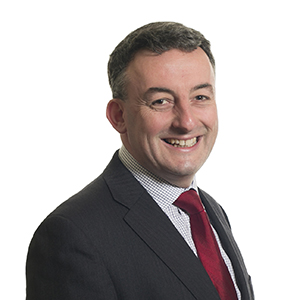
In July 2014 the then Home Secretary, Theresa May set up an Independent Inquiry into Child Sexual Abuse (IICSA), to examine how the country's institutions handled their duty of care to protect children from sexual abuse.
Following the high profile resignation of Hon. Dame Lowell Goddard as Chair of the Inquiry in early August, the Government was quick to reassure all parties that the work of the Inquiry would continue and a successor to Dame Goddard has been appointed.
The Inquiry will now be chaired by Professor Alexis Jay OBE
The IICSA has launched 13 investigations into a broad range of institutions, one of which is an inquiry into the sexual abuse and exploitation of children in residential schools in both the state and independent sectors.
Terms of Reference of the Inquiry
The terms of reference of the Inquiry are very broad, and are as follows:
To consider the extent to which State and non State institutions have failed in their duty of care to protect children from sexual abuse and exploitation; to consider the extent to which those failings have since been addressed; to identify further action needed to address any failings identified; to consider the steps which it is necessary for the State and non State Institutions to take in order to protect children from such abuse in future; and to publish a report with recommendations
In meeting these terms of reference, the Inquiry will, amongst other things, consider all information which is available in relation to published, and unpublished reviews, cases and investigations which have been concluded.
The Inquiry will look at the child protection measures that were in place at the time, the response of the relevant institution to any allegations made, and what changes, if any have been made to the child protection measures as a consequence of this.
In carrying out its duties, the Inquiry is entitled to seek disclosure from any organisation that falls within its terms of reference.
How does this affect residential schools?
This investigation will address residential schools:
- in both the state and independent sector because children are vulnerable in residential settings regardless of the school’s status or the means of their parents
- will explore how schools and other agencies respond to allegations of sexual abuse by school staff, and
- address broad questions of school culture, governance, leadership, training and recruitment.
What should you do?
Whilst the Inquiry is not yet accepting applications for core participant status or requesting evidence in so far as residential schools are concerned, the Inquiry has indicated that it intends to do so soon.
The inquiry has already started encouraging all victims of and survivors of child sexual abuse to share their experiences with the Inquiry.
It is therefore critical for the reputation of your organisation that it, in due course, it complies, in so far as it can, with any request made of it by the Inquiry, within any timescales identified.
You should therefore be in a position to act quickly should any request be made of your organisation.
This will include, amongst other things:
- A review of historical cases
- Review of any on-going cases
- Review of historic and current safeguarding practices that were, and are now, in place
Timescales for responding to any request for information are likely to be short and it therefore critical that you are in a position to respond swiftly.
How we can help?
Bond Dickinson's team of lawyers have extensive experience of advising organisations in relation to statutory and non statutory inquires.
We can assist you in carrying out a review of any historic and current cases, provide guidance on safeguarding practices and advise you on how to respond to any request made of you by the Inquiry.
Should your require any further assistance please contact Jon Cooper, Ewen Macgregor or Kevin Robertson.





